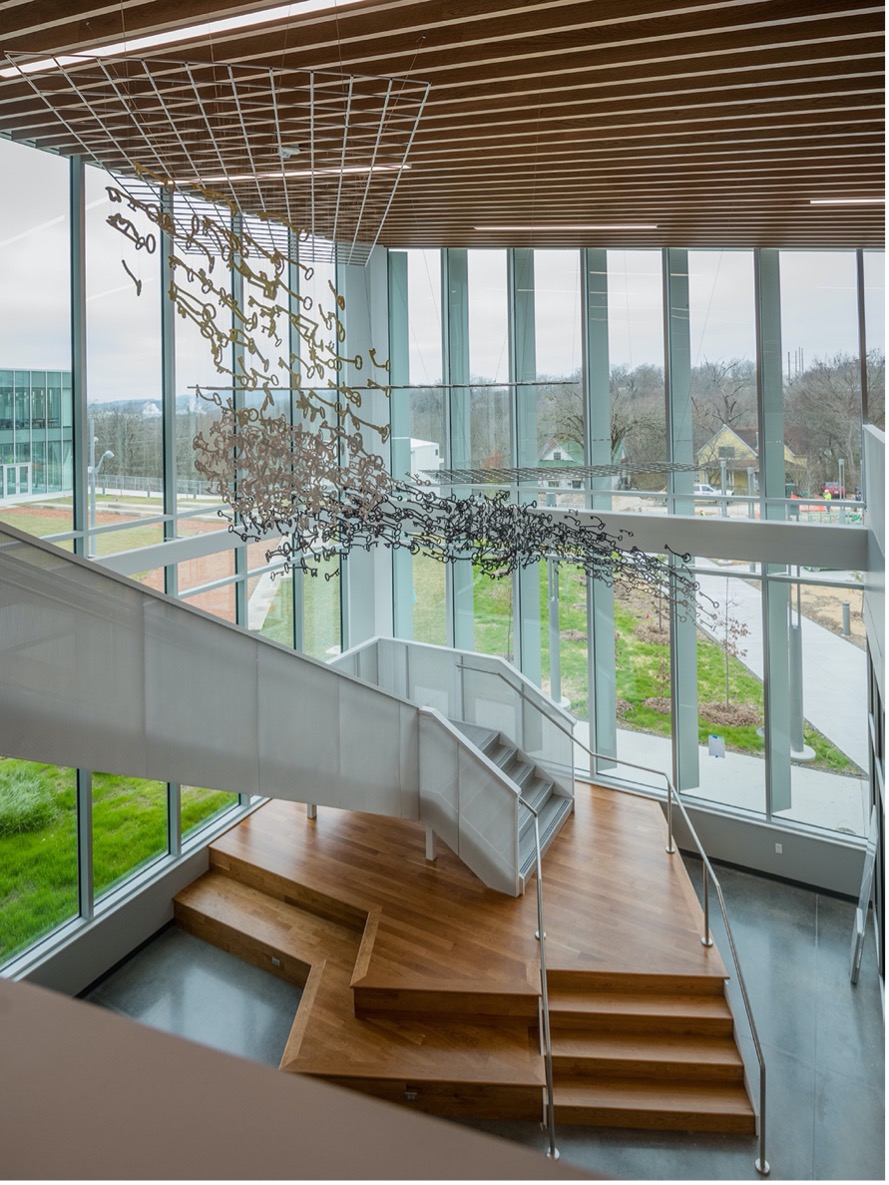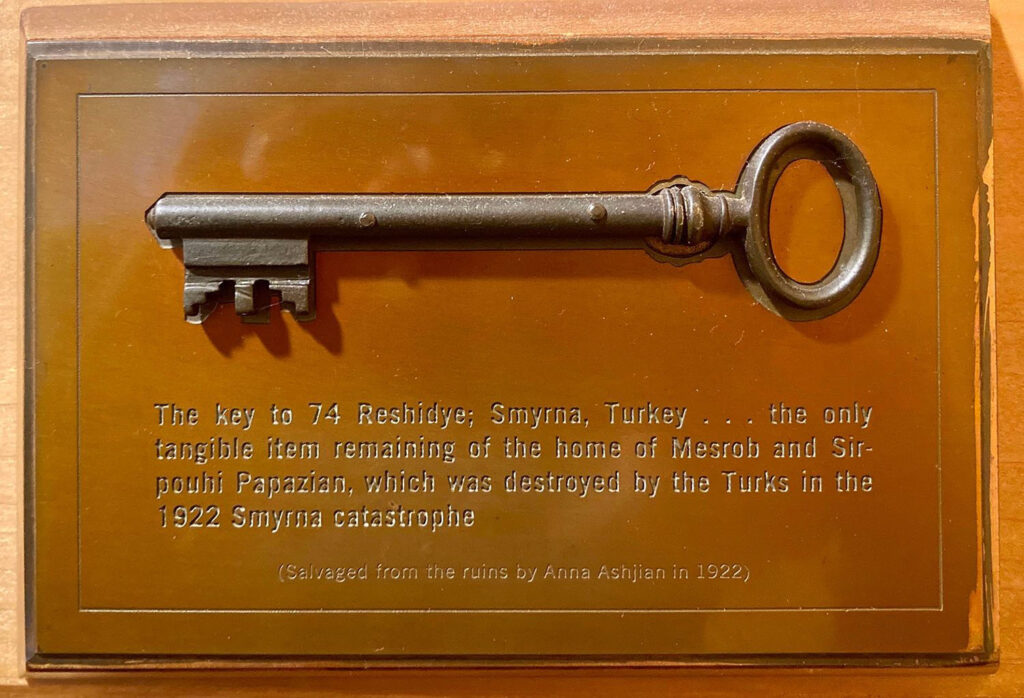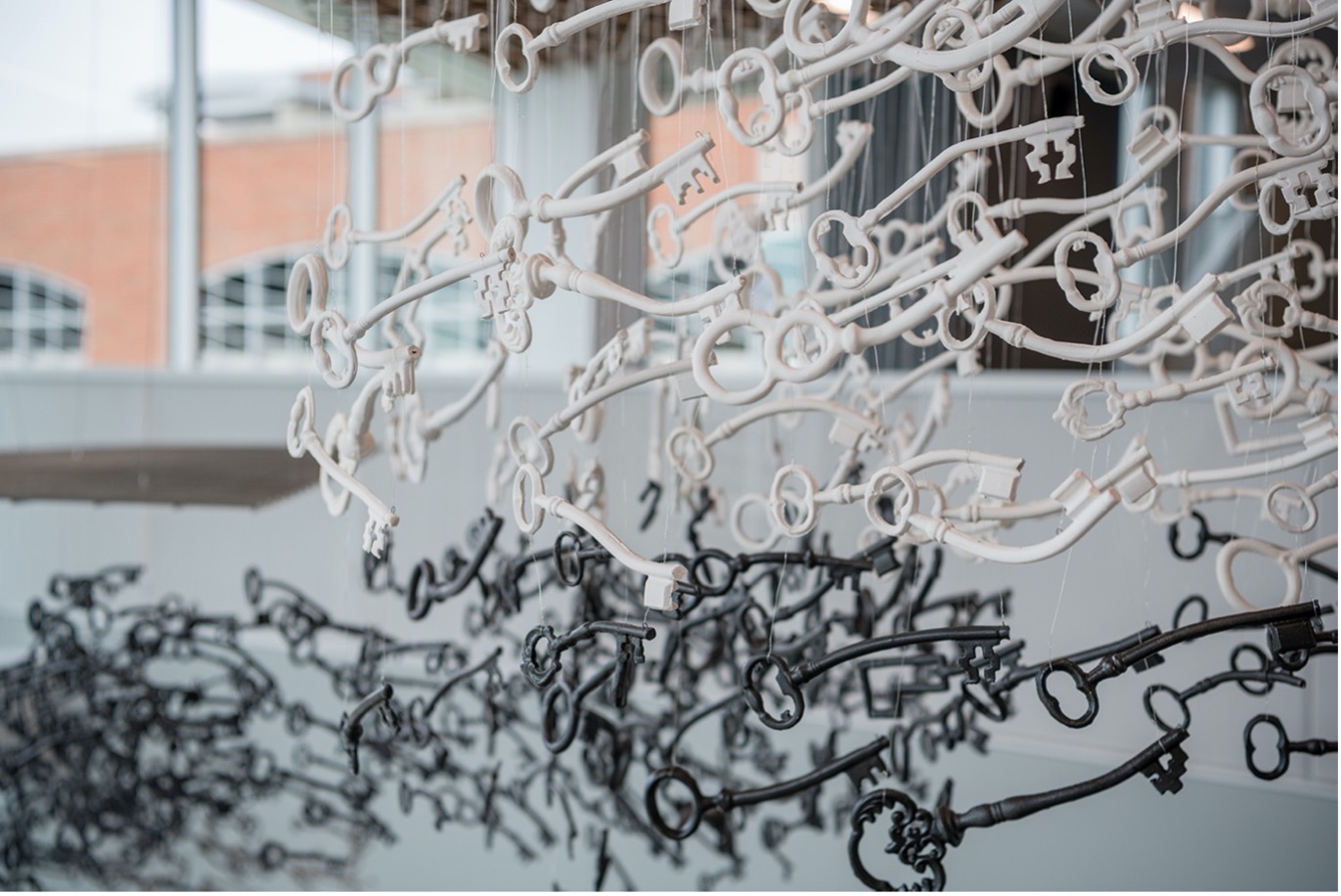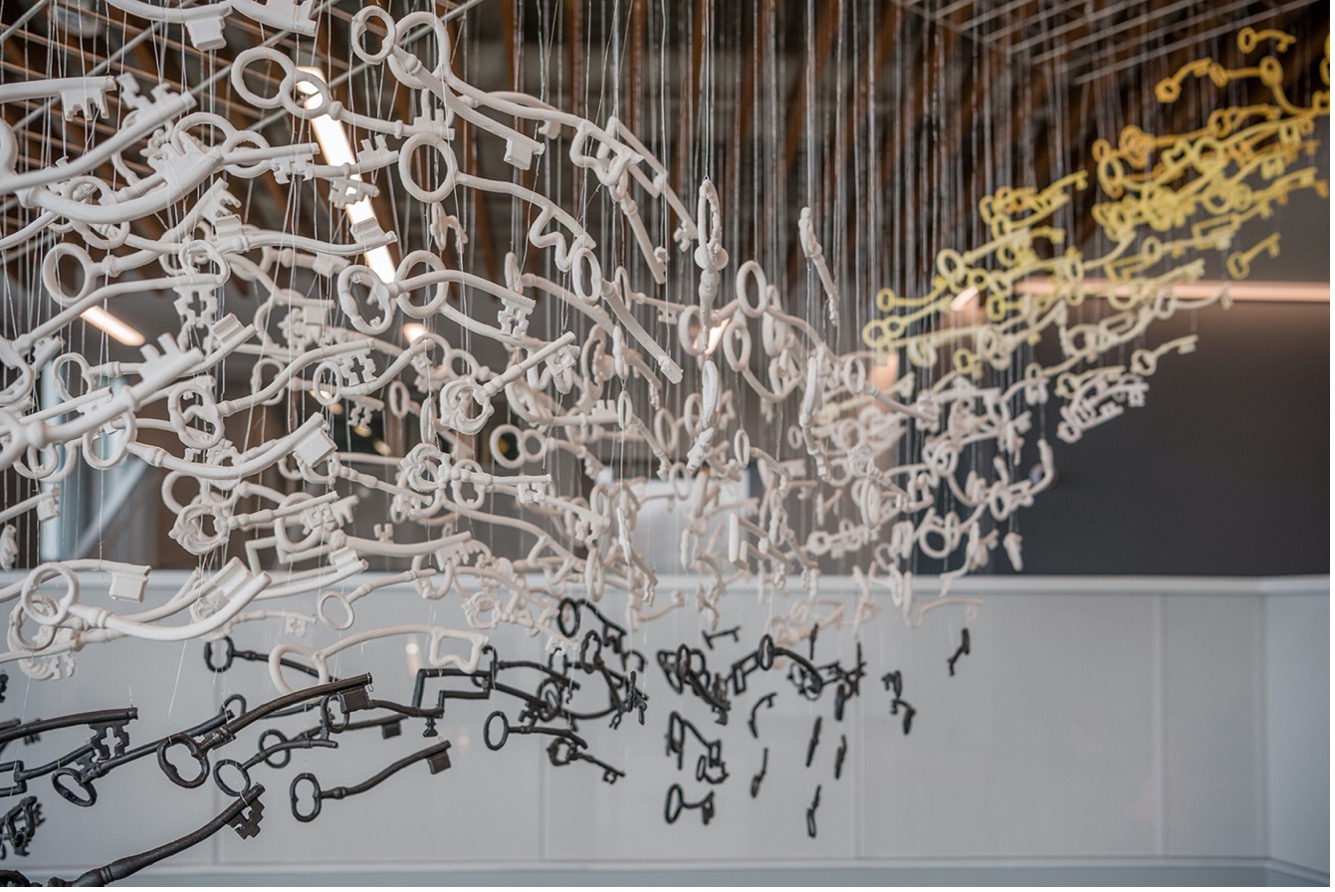
Aimée Papazian
Art and text by Aimée Papazian; photos by Stephen Ironside
“Voyage of Lost Keys,” a permanent art installation recently installed in the Fayetteville Public Library in Arkansas, started with a single key — a key to a house that was burned down during the Armenian genocide. This sculpture, made from thousands of porcelain keys flying in a murmuration, is a way to imagine a mass migration — a way to think about people who have lost their homes and their place in the world as still being somehow connected to each other. I am a member of the Armenian diaspora who currently lives in Arkansas, and with this piece I was trying to see myself as part of a community that is spread out across the globe.

When I was growing up, there was a small plaque with an old key on the wall of my grandmother’s house in Flushing, New York. That key was the only thing left of my grandfather’s house after the entire Armenian quarter of his hometown in Turkey was burned down. He fled for his life that day, along with many other Armenians in the country. He was 18 years old. After the fire, a friend went back to where his house had stood, found that key in the ashes, and sent it to my grandfather’s family.

When I started building the installation “Voyage of Lost Keys,” I made a larger version of my grandfather’s key out of clay. That was the first key I made for this piece. I cast the key in plaster in order to slip-cast more keys — a process where liquid clay is poured into plaster molds and then fired in a kiln. I researched historical keys and made them with the same process, as well as making plaster casts of found keys, because forced exodus exists and has taken place in so many cultures.

One of my first jobs after I graduated college was cataloguing a collection of 16 mm films. I loved this job because I never knew what I would see next — a day’s work could include old Tarzan films, different newsreels, and vintage educational films. My favorites were the silent Pathé newsreels from the 1920s that used to play in movie theatres before the feature film. One day I loaded up a reel and as it started playing, I realized it was about the burning of Smyrna, Turkey (now Izmir) — filmed as the city burned and refugees were ferried to French and Italian ships in the harbor. My face went numb when I realized that my grandfather had been there, and I watched it again and again, scanning for a face that could be my grandfather’s, and wondering which of the burning buildings could have been his house.

During the genocide, my great-grandmother walked on foot out of Eastern Armenia, with four little girls in tow — these girls later became my great-aunts. I wish I knew more about their journey. My grandmother was born after her family escaped and made its way to Egypt.
Building “Voyage of Lost Keys” in 8’ sections in my studio, I could not see the whole 24’ piece until I installed it at the library. After I finished, the most satisfying surprise was how much the piece gave me the sense of looking at a journey. This feeling made me think of my great-grandmother’s path as she fled on foot with her girls.



